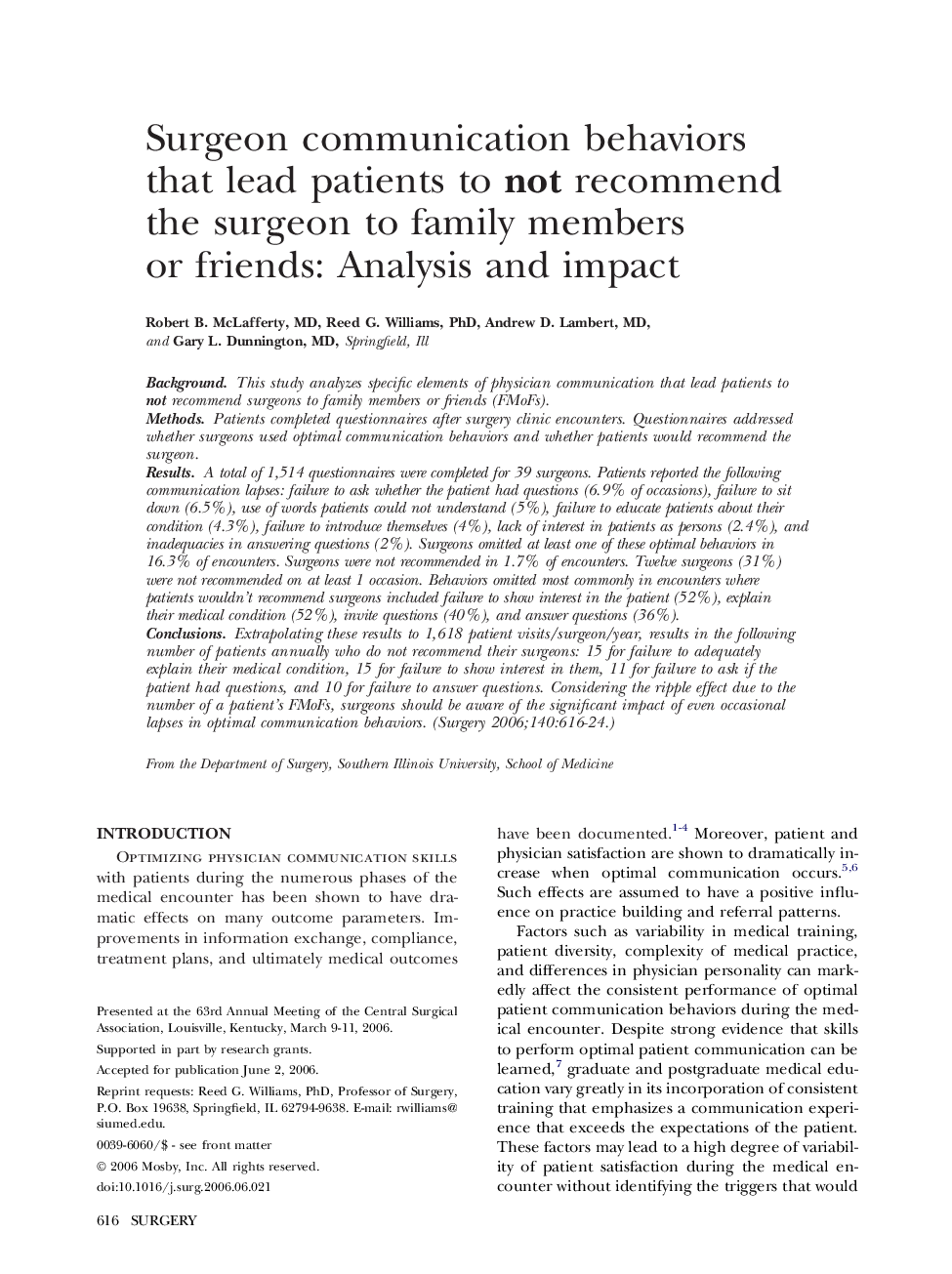| کد مقاله | کد نشریه | سال انتشار | مقاله انگلیسی | نسخه تمام متن |
|---|---|---|---|---|
| 4309975 | 1289330 | 2006 | 9 صفحه PDF | دانلود رایگان |

BackgroundThis study analyzes specific elements of physician communication that lead patients to not recommend surgeons to family members or friends (FMoFs).MethodsPatients completed questionnaires after surgery clinic encounters. Questionnaires addressed whether surgeons used optimal communication behaviors and whether patients would recommend the surgeon.ResultsA total of 1,514 questionnaires were completed for 39 surgeons. Patients reported the following communication lapses: failure to ask whether the patient had questions (6.9% of occasions), failure to sit down (6.5%), use of words patients could not understand (5%), failure to educate patients about their condition (4.3%), failure to introduce themselves (4%), lack of interest in patients as persons (2.4%), and inadequacies in answering questions (2%). Surgeons omitted at least one of these optimal behaviors in 16.3% of encounters. Surgeons were not recommended in 1.7% of encounters. Twelve surgeons (31%) were not recommended on at least 1 occasion. Behaviors omitted most commonly in encounters where patients wouldn’t recommend surgeons included failure to show interest in the patient (52%), explain their medical condition (52%), invite questions (40%), and answer questions (36%).ConclusionsExtrapolating these results to 1,618 patient visits/surgeon/year, results in the following number of patients annually who do not recommend their surgeons: 15 for failure to adequately explain their medical condition, 15 for failure to show interest in them, 11 for failure to ask if the patient had questions, and 10 for failure to answer questions. Considering the ripple effect due to the number of a patient’s FMoFs, surgeons should be aware of the significant impact of even occasional lapses in optimal communication behaviors.
Journal: Surgery - Volume 140, Issue 4, October 2006, Pages 616–624